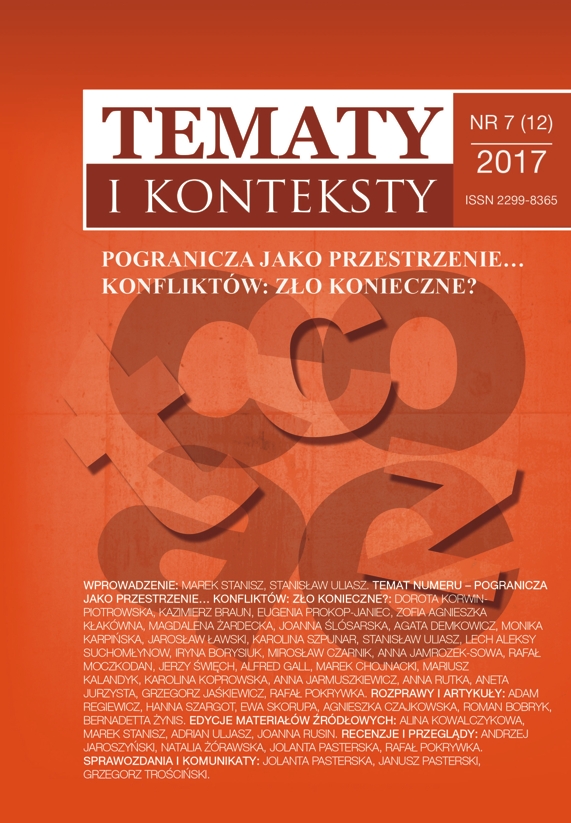The occult motives in the gothic novel of 18th i 19th century
DOI:
https://doi.org/10.15584/tik.2017.29Keywords:
gothic novel, occultism, magic, Matthew Gregory Lewis, Edward G. Bulwer-Lytton, William Beckford, Alexandre DumasAbstract
This text’s topic are all the forms of occultism and magic presented in four examples of gothic novel: Matthew Gregory Lewis’ The Monk, Edward G. Bulwer-Lytton’s The Last Days of Pompeii, William Beckford’s Vathek and Alexandre Dumas’ The Wolf Leader. The work presents the part, which magic plays in characters’ lives: how it is considered as art and wisdom, how important are rituals, why do people want to use it, how evil it can be, how it separates magicians from others, and how it can destroy the protagonist’s life.
Downloads
References
Beckford W., Wathek, tłum. A. Jasińska, Kraków 1975.
Bulwer-Lytton E. G., Ostatnie dni Pompejów, tłum. L. Belmont, Warszawa 1988.
Dumas A., Władca wilków, b. nazwiska tłumacza, b.m., b.r.
Eliade M., Okultyzm, czary, mody kulturalne, tłum. I. Kania, Kraków 1992.
Julia D., Słownik filozofii, tłum. K. Jarosz, Katowice 1993.
Lewis M. G., Mnich. Romans, tłum. Z. Sinko, Warszawa 1998.
Rustowski A. M., Angielska powieść gotycka doby wiktoriańskiej, Katowice 1977.
Downloads
Published
How to Cite
Issue
Section
License
Copyright (c) 2017 Tematy i Konteksty

This work is licensed under a Creative Commons Attribution-NonCommercial-NoDerivatives 4.0 International License.




